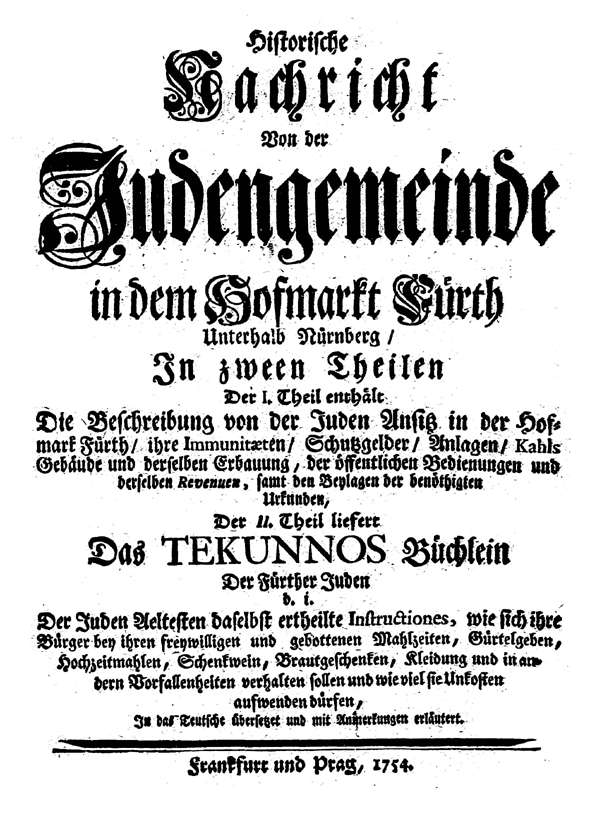These takkanos were originally written in Hebrew and Judeo-German, but translated and printed in Mitteilungen zur jüdischen Volkskunde by Max Grunwald (it includes the regulations from 1715 and 1726). Below is this specific communal regulation, and several other interesting ones:

#5 says that before the repetition of the Shemone Esre prayer, employees of the synagogue must announce that everyone should remain quiet, and on Shabbat and Yom Tov it should be announced before the Torah reading.
#33 says that once a boy reaches age 13 (bar mitzvah) then he may appear in synagogue wearing a black hat.
#34, which includes the opera regulation I began the post with, says in full that both males and females may not visit taverns on Shabbat or holidays to drink. They also may not visit fencing schools (competitions?) or comedy shows on these days, under threat of a 4 Reichsthaler penalty. Everyone is forbidden to go to the opera entirely, except for the week of Purim and during Chanukah. Anyone who violates these regulations will be subject to the penalties, regardless of who they are, and if they are a communal elder, they will lose their position.
Good to know that both men and women are forbidden from going to the tavern to drink on Shabbos. And no opera, ever - except for Chanukah and Purim! Sort of puts the socio-religious situation in perspective.
Some of these communal takkanos are very era-specific. For example, this one forbade women and girls from applying artificial beauty marks on the face, except on their temple:

In 1754 the communal takkanos of Fürth (ק"ק פיורדא) from 1728 were published in German in a book called the Tekunnos Büchlein:

Here we see among other things that wearing a powdered wig to shul was forbidden (for men). It points out that the old, pious men have the decency not to wear their powdered wigs to shul, but not the young men:

And for women, we see that short pinafores, facial beauty marks, and learning to dance were forbidden.

